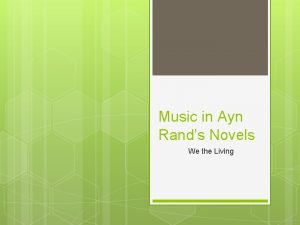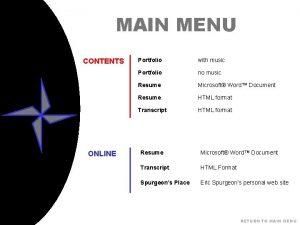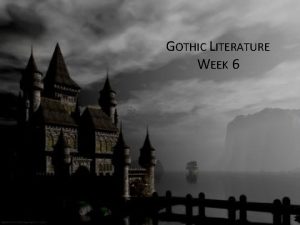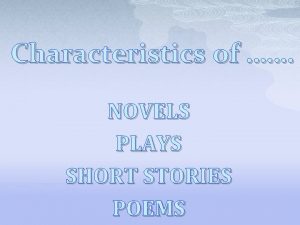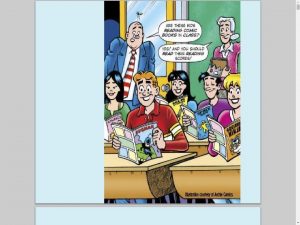Music in Ayn Rands Novels We the Living










- Slides: 10

Music in Ayn Rand’s Novels We the Living

Musical Biography Apparently, Rand kept a musical biography that she called "My Musical Biography, " a list of 17 songs from 1911 to 1959. Of course, most of this included what they called "military band music" that she would hear as a youth in Russia.

Two Songs Stand Out “The Song of Broken Glass”– fictional piece “The Internationale”– Communist song

“The Song of Broken Glass” This is a particularly intriguing inclusion because it is the only fictional piece of music in the novel and-as a consequence-has elicited considerable curiosity in its origins. Being a fictional piece of music, it represents, like the "Unfinished Symphony" of Atlas Shrugged, Rand's vision of art, not as an imitation of life as it is, but a selective recreation. Rand mentions it several times. It is clear that it symbolizes something for Kira… but what? Read to find out!

In context… “It had been a favorite beauty of Vienna. There had been a balustrade on the stage, overlooking a drop with the twinkling lights of a big city, and a row of crystal goblets lined along the balustrade. The beauty sand the number and one by one, lightly, hardly touching them, kicked the crystal goblets and sent them flying in tingling, glittering splinters-around the tight, sheer stockings on the most beautiful legs in Europe. There were sharp little blows in the music, and waves of quick, fine notes that burst and rolled like thin, clear ringing of broken glass. There were slow notes, as if the cords of the violins trembled in hesitation, tense with the fullness of sound, taking a few measured steps before the leap into the explosion of laughter. ”

The Internationale The International, of course, is the piece that Kira hears at the student rally “[I]n the magnificent goblet of the music, the words were not intoxicating as wine; they were not terrifying as blood, they were gray as dishwater. But the music was like the marching of thousands of feet, measured and steady, like drums beaten by unvarying, unhurried hands. The music was like the feet of soldiers marching into the dawn that is to see their battle and their victory; as if the song rose from under the soldier's feet, with the dust of the road, as if the soldier's feet played it upon the earth. The tune sand a promise, calmly, with the calm of an immeasurable strength, and then, tense with a restrained, but uncontrollable ecstasy, the notes rose, trembling, repeating themselves, too rapt to be held still, like arms raised and waving in the sweep of banners. It was a hymn with the force of a march, a march with the majesty of a hymn. It was the song of soldiers bearing sacred banners and of priests carrying swords. It was an anthem to the sanctity of strength. "

Impact on Kira The experience, for Kira, is "the first beautiful thing" she's noticed about the Revolution. This was in reaction to a real-world piece of music that affected Rand.

Summation These two songs epitomize the polarity of Rand's philosophy itself, the hard, disciplined, strong, defiantly proud defense for all that's right, and the idea that this is a benevolent universe, where happiness and joy are possible to man. Indeed, Rand's tough-as-nails approach is never for its own sake, but always in the service to pave the way for that joy. Rand was not a hedonist, so a purely decadent music could never do; the joy in her music comes after the work is done. But it also comes from an unbroken spirit, one that never questions its own right to exist…

…The two choices also represent where Rand was and where she was going. The Internationale was the "best" of her real-life world, "Broken Glass" represented the "best" of where she was going, the mythical "abroad" of America. Rand is said to be a "Russian" writer; beyond stating the obvious, the style of Atlas owes a lot to the Russian style of writing. The Internationale is probably a testament to that. But Rand is, more importantly, a consciously American writer, and this is reflected in the idealization of "The Song of Broken Glass. " One could say there is a dynamic tension between the heavy "Russian-ness" and the light-hearted "American-ness. "

Listen and Respond… Listen to The Internationale and respond to the following questions: 1. What is the tone of the music? What does the sound of the music imply about the message of the song? 2. What images come to mind when listening to the music?

